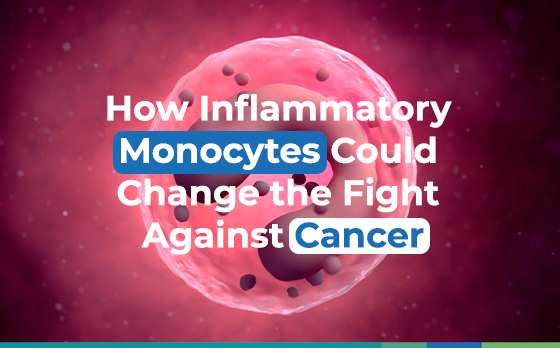Immunotherapy has transformed the medical landscape by offering new hope to cancer patients, but many tumors have developed sophisticated mechanisms to evade the immune response, limiting the effectiveness of these treatments. A recent study published in Nature by a team led by Anaïs Elewaut and Anna C. Obenauf from the Institute of Molecular Pathology (IMP) in Vienna sheds light on the role of inflammatory monocytes in reactivating T cells within the tumor microenvironment. These findings open up new possibilities to reconfigure immunological therapies and overcome cancer resistance to treatments.
T cells, especially cytotoxic CD8+ T cells, are fundamental in the fight against cancer. However, once they reach the tumor, they need to be reactivated to maintain their effectiveness. This process occurs in specific niches within the tumor microenvironment, where other immune cells, such as dendritic cells, interact with T cells. But what happens when these niches are dysfunctional?
The study demonstrates that inflammatory monocytes can play a crucial role in this process. Through the production of essential cytokines such as IL-15, CXCL9, and CXCL10, and via a mechanism known as “cross-dressing”, monocytes can present tumor antigens to T cells. This mechanism allows them to “borrow” antigen-MHC complexes from tumor cells and display them to T cells, reactivating the T cells to effectively attack cancer cells.
Despite this critical role, the study also reveals how tumor cells manipulate the tumor microenvironment to inhibit the action of inflammatory monocytes. Two key mechanisms in this process are the production of prostaglandin E2 (PGE2) and the reduction of type I interferon (IFN-I) signaling. Prostaglandin E2 suppresses the inflammatory state of monocytes and reduces their ability to reactivate T cells. On the other hand, decreased levels of IFN-I prevent the proper stimulation of monocytes and dendritic cells, further weakening the immune response. These mechanisms create an immunosuppressive environment that promotes tumor growth and hinders the effectiveness of current therapies.
Based on these discoveries, the researchers propose new therapeutic strategies to restore immunological balance in the tumor microenvironment. One proposal is to inhibit the production of prostaglandin E2 through the use of COX inhibitors, such as aspirin or celecoxib, which reactivate the function of inflammatory monocytes. Another strategy is to enhance IFN-I signaling by overexpressing factors like IRF3/7 or using epigenetic agents such as 5-azacytidine, which could restore interferon production and improve immune cell activity. These interventions, combined with current immunotherapies such as immune checkpoint inhibitors, offer a promising pathway to increase treatment efficacy.

Figure 1. Findings of the study, showing the importance of inflammatory monocytes in the cytotoxic immune response within the tumor microenvironment.
This study redefines the role of inflammatory monocytes in antitumor immunity while identifying how cancer cells manipulate their environment to evade the immune response. By understanding and addressing these mechanisms, more specific therapies can be developed to reverse these adaptations and improve success rates in patients with resistant cancers, such as melanoma, lung cancer, and colorectal cancer. In the future, immunotherapy will not only focus on attacking tumor cells but also on reconfiguring the immunological ecosystem surrounding them. This advance marks a crucial step toward more personalized and effective treatments, offering new hope to patients facing difficult-to-treat cancers.
Main Reference:
Elewaut, A., Estivill, G., Bayerl, F., Castillon, L., Novatchkova, M., Pottendorfer, E., Hoffmann-Haas, L., Schönlein, M., Nguyen, T. V., Lauss, M., Andreatta, F., Vulin, M., Krecioch, I., Bayerl, J., Pedde, A.-M., Fabre, N., Holstein, F., Cronin, S. M., Rieser, S., … Obenauf, A. C. (2024). Cancer cells impair monocyte-mediated T cell stimulation to evade immunity. Nature, 1–10. https://doi.org/10.1038/s41586-024-08257-4
Other References:
Binnewies, M., Roberts, E. W., Kersten, K., Chan, V., Fearon, D. F., Merad, M., Coussens, L. M., Gabrilovich, D. I., Ostrand-Rosenberg, S., Hedrick, C. C., Vonderheide, R. H., Pittet, M. J., Jain, R. K., Zou, W., Howcroft, T. K., Woodhouse, E. C., Weinberg, R. A., & Krummel, M. F. (2018). Understanding the tumor immune microenvironment (TIME) for effective therapy. Nature medicine, 24(5), 541–550. https://doi.org/10.1038/s41591-018-0014-x
Spranger, S., & Gajewski, T. F. (2018). Impact of oncogenic pathways on evasion of antitumour immune responses. Nature reviews. Cancer, 18(3), 139–147. https://doi.org/10.1038/nrc.2017.117
Di Pilato, M., Kfuri-Rubens, R., Pruessmann, J. N., Ozga, A. J., Messemaker, M., Cadilha, B. L., Sivakumar, R., Cianciaruso, C., Warner, R. D., Marangoni, F., Carrizosa, E., Lesch, S., Billingsley, J., Perez-Ramos, D., Zavala, F., Rheinbay, E., Luster, A. D., Gerner, M. Y., Kobold, S., Pittet, M. J., … Mempel, T. R. (2021). CXCR6 positions cytotoxic T cells to receive critical survival signals in the tumor microenvironment. Cell, 184(17), 4512–4530.e22. https://doi.org/10.1016/j.cell.2021.07.015


